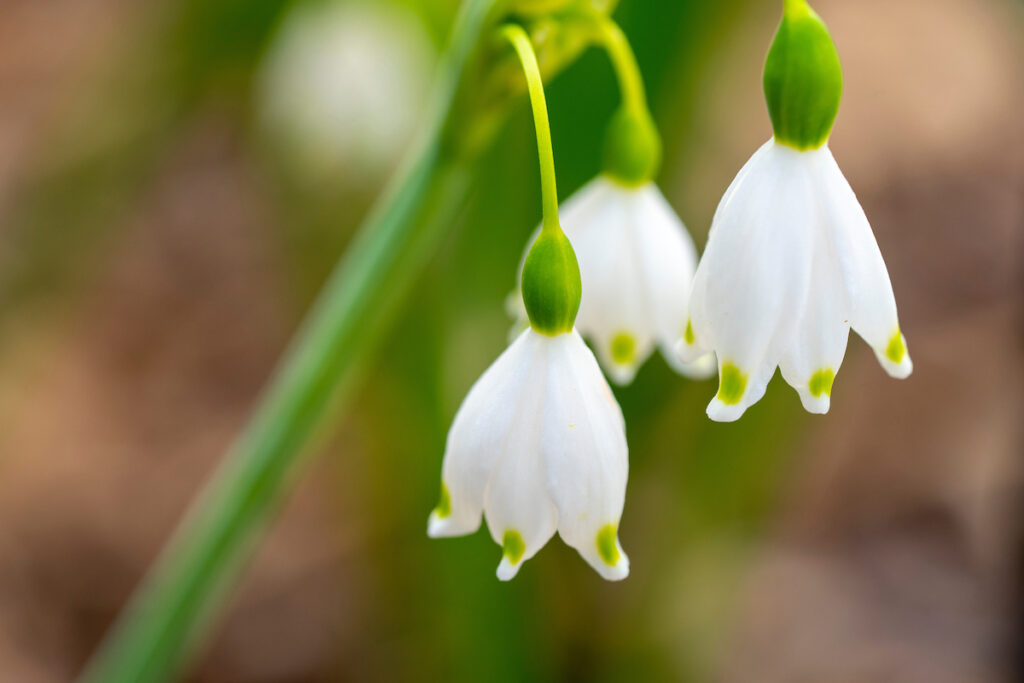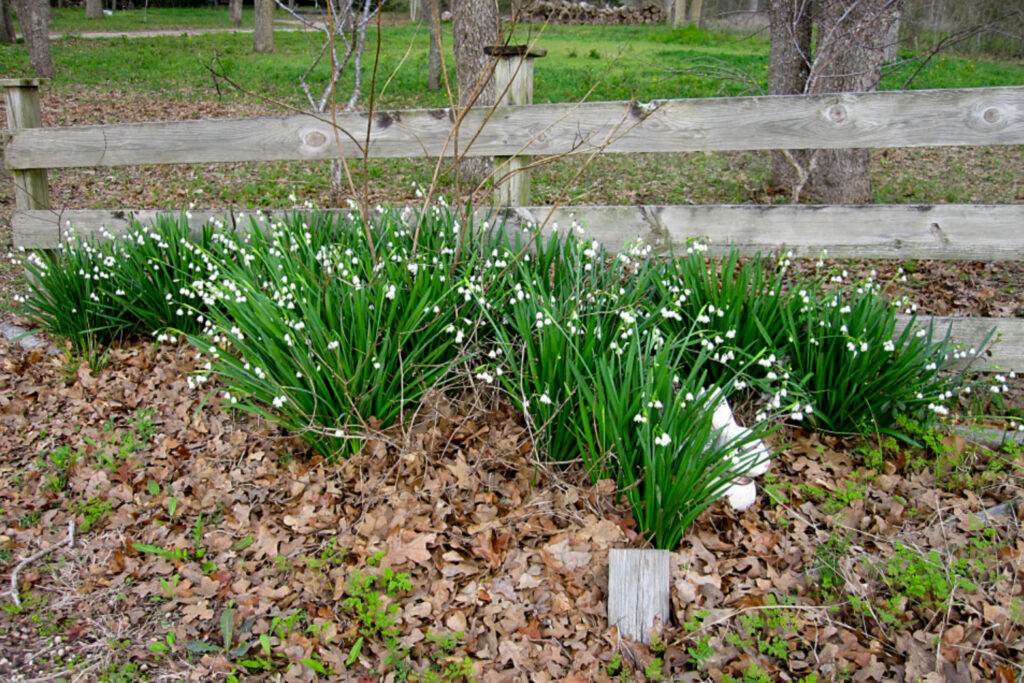- South Texas Students Meet Accordion Music Icons Los Tigres Del Norte In Edinburg Thanks To Khs America/Hohner Alianza Académica Initiative
- Fragile Planet Offers a Nighttime Wildlife Experience
- Falcons Soccer Off & Running
- Cameron County Receives Funds to Improve Two Parks
- Falcons Complete First Half of 32-6A
- School District to Help out Victims of California Wildfires
- Sand Castle Days Continued Despite Unexpected Weather
- Ready for District
- Discussion of Garbage Dumpster Rates, Agreements Between State & City on Highway Regulations, and More
- 31st Annual Shrimp Cook-Off is Right Around the Corner
Summer Snowflake Named Newest Texas Superstar
- Updated: November 9, 2024
Bulb plant easy to grow, blooms bring early spring color

By Adam Russell
Summer snowflake, or Leucojum aestivum, has been named the latest Texas Superstar plant based on the plant’s proven ability to deliver springtime blooms without any fuss.
Despite its common name, summer snowflakes are a spring bloomer in the Lone Star State, said Mike Arnold, Ph.D., professor in the Texas A&M College of Agriculture and Life Sciences Department of Horticultural Sciences, director of The Gardens at Texas A&M University and Texas Superstar executive board member.
Arnold said summer snowflakes are a low-maintenance landscape ornamental with a long history of success across the state.
“Summer snowflakes are among the first bulb plants to bloom,” he said. “They’re part of that first breath of spring with their beautiful dark green foliage and striking, delicate flowers.”
To be designated a Texas Superstar, a plant must perform well for growers throughout the state. Texas Superstars must also be easy to propagate, ensuring the plants are widely available and reasonably priced. Lubbock.
Get to know summer snowflakes
Snowflakes are long-lived perennial bulbs that emerge during the late winter, then produce numerous stalks of small, white, bell-shaped flowers above green foliage during early spring. The foliage then goes dormant for the summer.
Arnold said it is common to see snowflakes in old gardens and around abandoned homesites across the South. This “tough as nails” member of the amaryllis family is also known as snowbells, dewdrops and even snowdrops.
Gardeners should be careful not to confuse snowflakes as “lily of the valley” or Convallaria, and Galanthus, which are also known as “snowdrops.” All of these belong to entirely different plant families that do not perform well in Texas.
Summer snowflake prefers full sun to shade from deciduous trees, he said. They are adapted to most soils, including acid or alkaline, sands, silts and clays. Plants need low to medium amounts of irrigation. They perform best with no summer irrigation and natural winter moisture.
Bulbs are best planted in the fall but can be divided at any time of the year.
Like all spring bulbs, Arnold said it is critical to allow the foliage to die back naturally. Cutting the green foliage prematurely will eliminate next year’s blooms. Repeated premature foliage cutting will eventually kill them.
Arnold said seeing reduced blooms over time might also indicate overcrowding and that bulbs need to be divided.
“They are so carefree in terms of time, money and effort they require once they’re established,” he said. “But letting the foliage die back before you remove it is key because the foliage fuels next year’s flower production.”
Best use of summer snowflakes
Summer snowflakes are a good addition to landscapes because they provide a combination of green foliage and a pop of seasonal color, Arnold said. They are a great choice for providing pockets of color, mixed borders, edging, groundcovers or naturalizing in lawns, meadows and prairies.
As cool-season perennials, snowflakes can be grown alongside warm-season perennials to provide foliage and color during the opposite season, Arnold said. They can also be grown in warm-season lawns and landscapes to provide foliage and color during the dormant season.
Snowflakes can also be planted in groundcovers such as Asian jasmine, liriope and mondo grass for added color and contrast, he said.
“Summer snowflakes are generally pest- and problem-free,” Arnold said. “They aren’t bothered by deer, don’t need a lot of maintenance, and they show up year after year to give you that first pop of spring color.”
Texas Superstar is a registered trademark owned by Texas A&M AgriLife Research. Plants are designated by the Texas Superstar executive board, which comprises nine horticulturists from AgriLife Research, Texas A&M AgriLife Extension Service and Texas Tech University in Lubbock.




